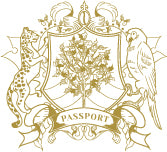- Home
- Single Origin Coffee
- Kenya Rianjagi Embu AA...

Kenya Rianjagi Embu AA Washed Espresso
Order in the next today:
To receive your package between
and

Origin: Kenya
Region: Rianjagi, Embu
Altitude: 1700 meters above sea level
Washing Station: Rianjagi Factory
Growers: Farmers delivering to Rianjagi Factory
Variety: Batian, Ruiru 11, SL28 and SL34
Process: Fully Washed
Tasting Notes: TBC
Built in 1976, Rianjagi Factory and Rianjagi Farmers’ Cooperative Society (FCS) is owned by the farmers. The factory and FCS are named for the area, which is also called Rianjagi. Farmers receive a variety of supports from the FCS, including farm inputs, farmer trainings and marketing for their coffee.
Farmers delivering to Rianjagi washing station cultivate primarily SL28, SL34, Ruiru 11 and Batian in small coffee gardens that are, on average, smaller than 1 hectare. ‘SL’ varieties are cultivars originally released by Scott Agricultural Laboratories (SAL) in the 1930s and 1940s. They soon became the go-to trees for many growers in Kenya due to their deep root structure, which allows them to maximize scarce water resources and flourish even without irrigation. They are cultivated with a serious eye towards sustainability and Good Agricultural Practices, with minimal environmental impact where possible.
Batian is a relatively new variety introduced by the Kenya Coffee Research Institute (CRI) in 2010. Batian is named after the highest peak on Mt. Kenya and is resistant to both CBD and CLR. The variety has the added benefit of early maturity – cropping after only two years. Similar to Batian, Ruiru 11 is a new variety known for its disease resistance and high yields. It also starts yielding fruit after just 2 years.
Farmers selectively handpick ripe, red cherry and deliver it to Rianjagi Factory. At intake, a cherry clerk oversees all cherry and ensure only the highest quality cherry is accepted. Cherry is pulped and fermented in tanks for 12 to 16 hours. Following fermentation, parchment is washed in clean water and laid on raised beds to dry. Parchment is raked frequently to ensure even drying.
Kenyan coffees are classified by size. AA beans are the largest size. AA grade coffees are those that are 17/18 screen size, meaning that they are larger than 7.2 millimeters.
Though coffee growing had a relatively late start in Kenya, the industry has gained and maintained a impressive reputation. Since the start of production, Kenyan coffee has been recognized for its high-quality, meticulous preparation and exquisite flavors. Our in-country sister company, Sucafina Kenya, works with farmers across the country to ensure these exceptional coffees gain the accolades they deserve.
Today, more than 600,000 smallholders farming fewer than 5 acres compose 99% of the coffee farming population of Kenya. Their farms cover more than 75% of total coffee growing land and produce nearly 70% of the country’s coffee. These farmers are organized into hundreds of Farmer Cooperative Societies (FCS), all of which operate at least one factory. The remainder of annual production is grown and processed by small, medium and large land estates. Most of the larger estates have their own washing stations.
Most Kenyan coffees are fully washed and dried on raised beds. The country still upholds its reputation for high quality and attention to detail at its many washing stations. The best factories employ stringent sorting practices at cherry intake, and many of them have had the same management staff in place for years.
| Type: | |
|---|---|
| Vendor: | |
| Size: |
250 grams, 1 Kilogram |
| Weight: |
1.0 kg |
